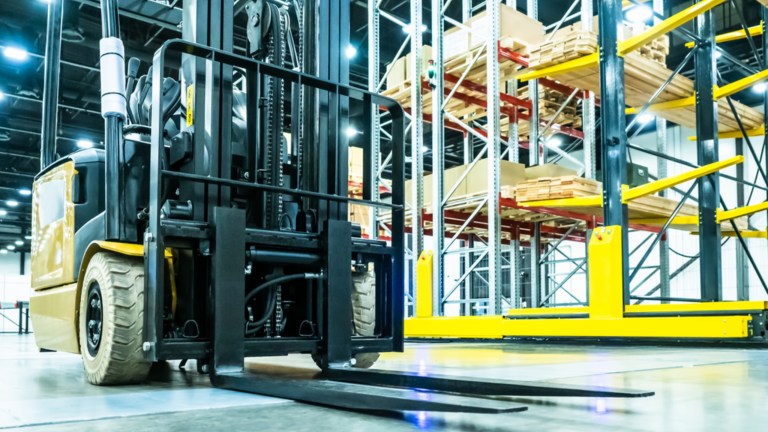
Proper maintenance is necessary for improving a forklift’s performance and extending its lifespan. Failing to maintain your forklift can lead to costly repairs and accidents with employees and property. Minor maintenance tasks can significantly affect a forklift’s condition, and ignoring these tasks can be dangerous.
In addition to being maintained by an operator, a forklift will benefit from preventive maintenance services. It doesn’t take long to perform forklift maintenance to keep your equipment in excellent working order for years.
Keep reading to learn about the best ways to keep your forklift running at its best.
Forklifts need daily cleanings to remove dirt, dust, debris, and oil from moving parts. Cleaning a forklift is simple: Wipe the entire truck with a dry rag before every shift. Regularly removing contaminants and obstructions from the work environment prevents the machine’s performance from tanking.
A quick cleaning may seem pointless in a dirty industrial environment or an outdoor application. However, a regular cleaning goes far in preventing severe problems. By keeping the truck clean all the time, it will also keep future repair costs low.
Every vehicle needs its oil changed every so often, and forklifts are no exception. You should change a forklift’s oil and oil filter every three months. Continuously refilling the engine without draining the used oil can cause sludge to build up, corrode metal parts, and lead to disruptions in operation.
OSHA requires forklift operators to perform daily inspections on their machines to ensure safety. Operators should perform checks while the forklift is on and off. These inspections include:
You may need to perform additional inspections if you have a forklift with a different fuel source such as electricity, internal combustion, or liquid propane.
Daily fork inspections ensure that a forklift can lift effectively without damaging its load. Despite their steel construction, thin steel forks suffer wear and tear after extended periods of lifting heavy pallets. Maintenance helps you monitor their condition so you know when to replace them.
Straight and undamaged forks are vital to allow precise movement. Forks with rough edges and crooked tips can damage loads while trying to lift them. To avoid damaging cargo, perform thorough daily maintenance checks of forks, and promptly repair damaged forks.
A forklift’s hydraulic hoses facilitate lifting movements and allow operators to move loads safely. Hydraulic hoses are prone to leaks that can result in less lifting power and create potential fire hazards. A daily hose inspection is vital to prevent serious injury when carrying loads.
Examine each hose for holes, scuffs, and other physical damage. Signs of leaks may not be evident at first. Be sure to wear protective gloves and avoid coming into contact with hydraulic fluid.
After every 200 hours of use, a forklift requires a monthly inspection and more thorough maintenance. Monthly forklift maintenance focuses on ensuring essential forklift parts operate smoothly at all times.
A forklift operator should inspect a truck for structural damage, assess battery life, and check all functions. While a forklift should get an oil and oil filter change every three months, a monthly oil change is even better. Monthly upkeep will take substantially more time than daily upkeep, as monthly maintenance requires close attention to detail.
More infrequent forklift maintenance ranges between quarterly, semi-yearly, and yearly service intervals. The unique needs of each forklift require a service professional to create an effective maintenance plan for each truck. Whether a plan creates a quarterly or yearly maintenance routine, they can include maintenance services, including:
With proper daily and monthly maintenance combined with infrequent professional services, you can reduce the need for future repairs. If a forklift is in excellent condition, a service technician may not perform all these tasks at every maintenance appointment. A maintenance plan helps companies save money on repairs while preventing unexpected costs through consistent service.
While forklift maintenance goes far in preventing future issues, a mobile truck repair in Berkeley, CA, increases forklift longevity by resolving problems before they are irreparable. All Bay Diesel has the necessary expertise when you need high-quality forklift maintenance services. We can identify problems and perform effective repairs to restore forklift operation.
Contact All Bay Diesel for professional forklift maintenance in Berkeley, CA, and the San Francisco Bay Area. Call (925) 522-1780 today to discuss setting up a comprehensive forklift maintenance plan.